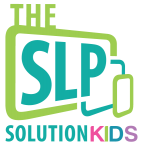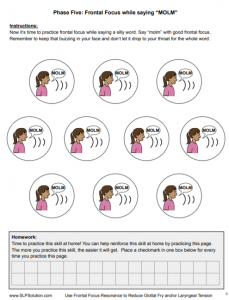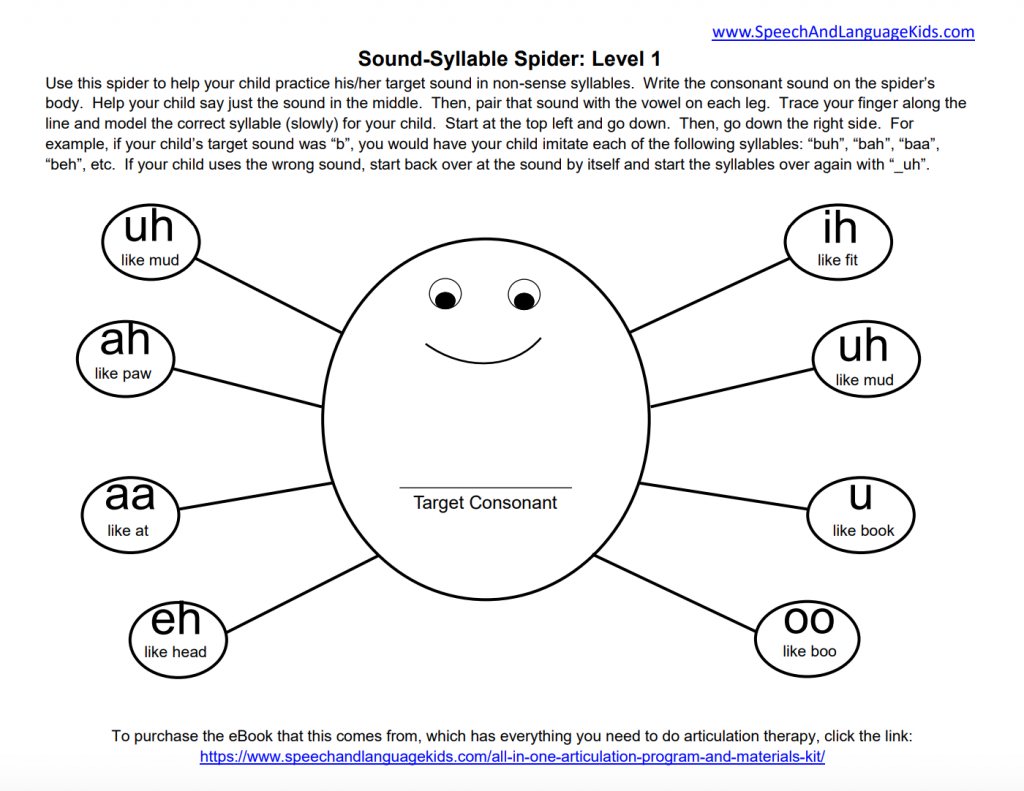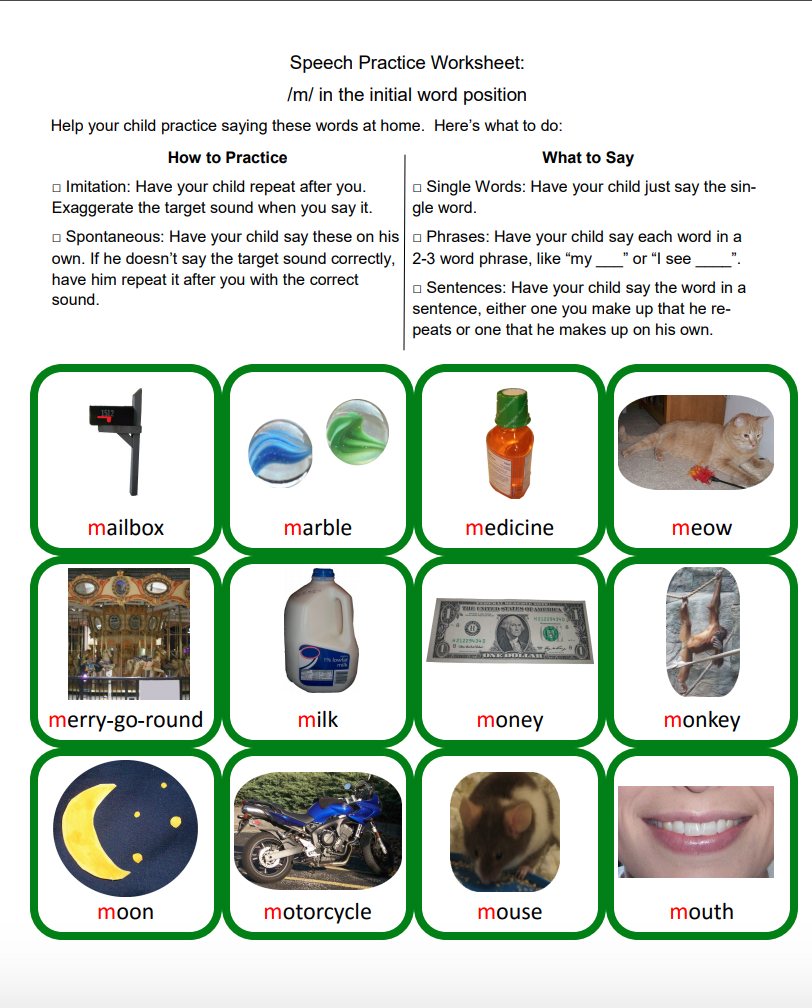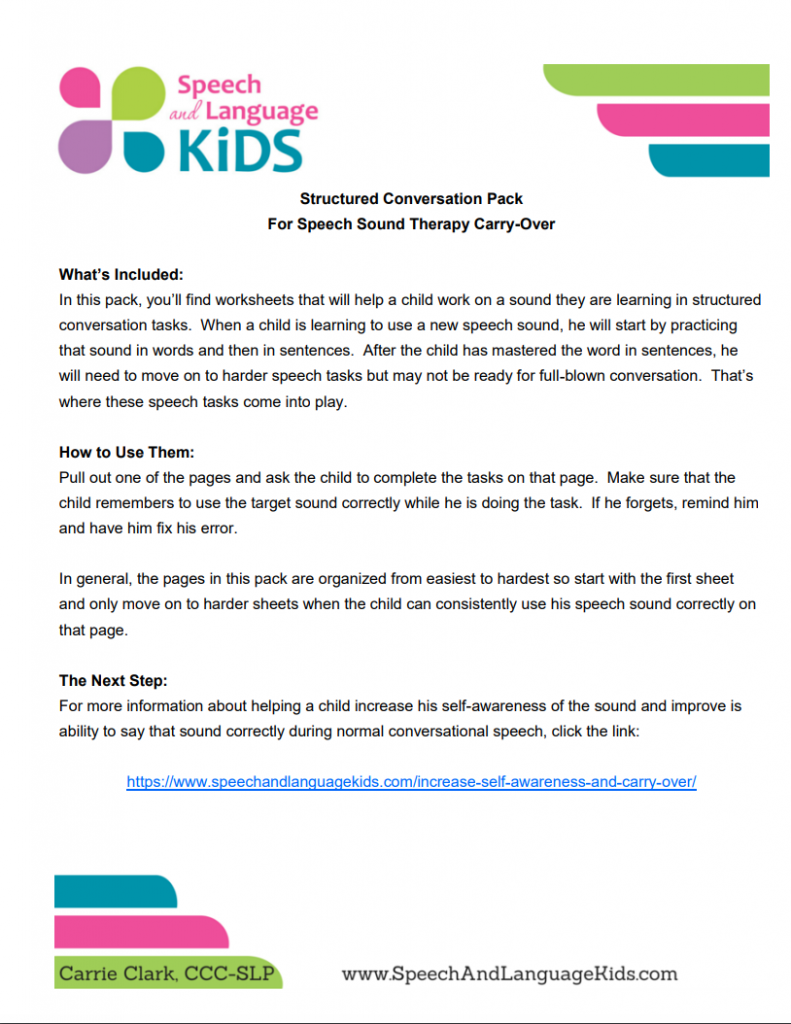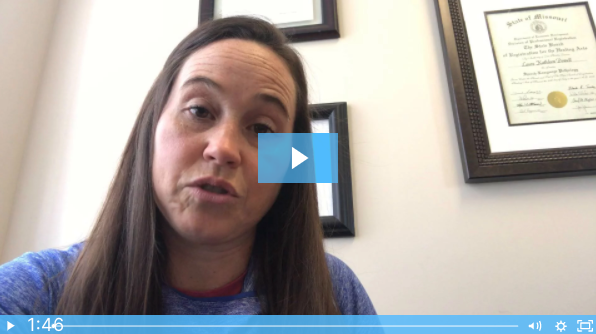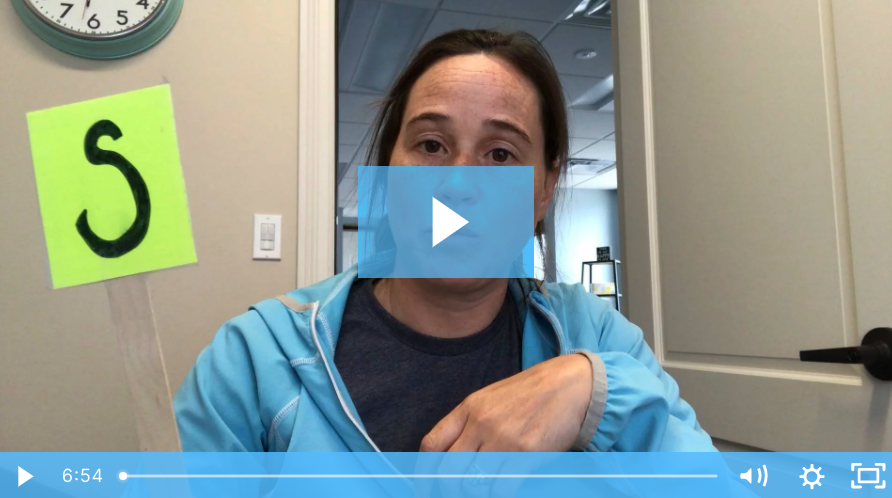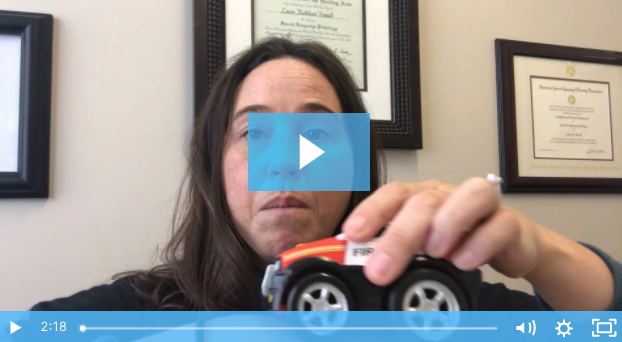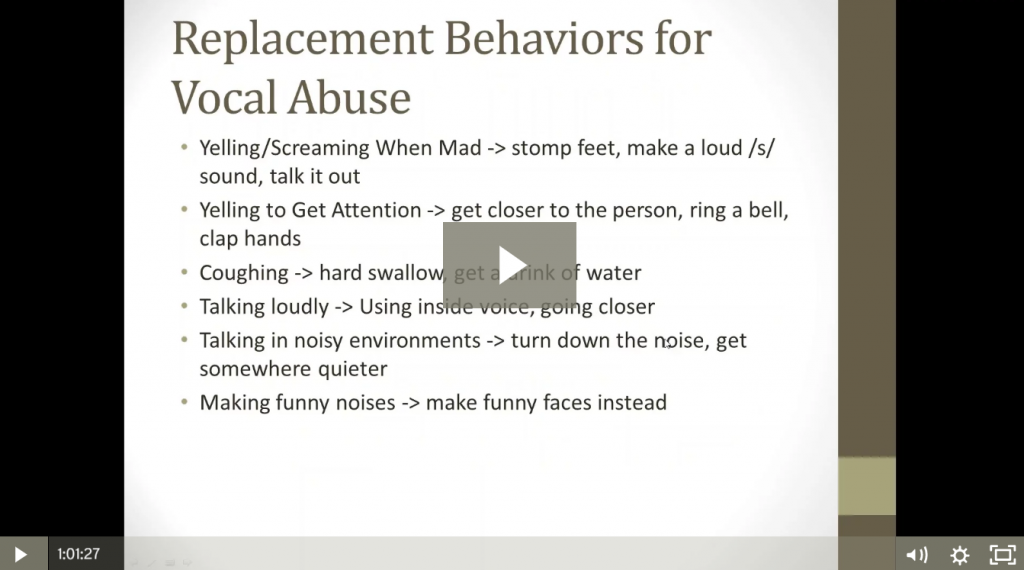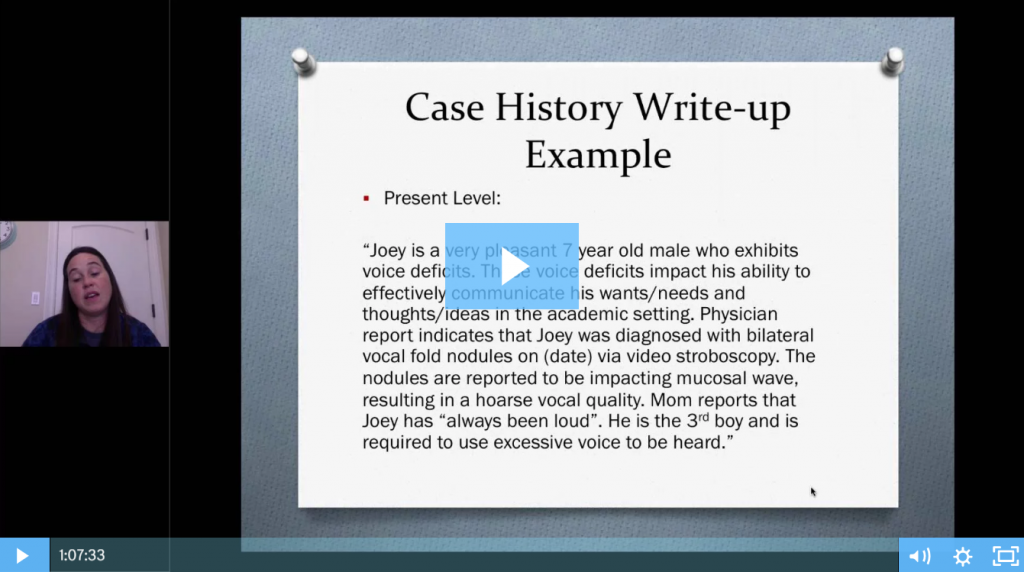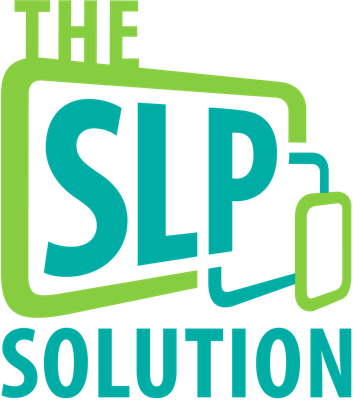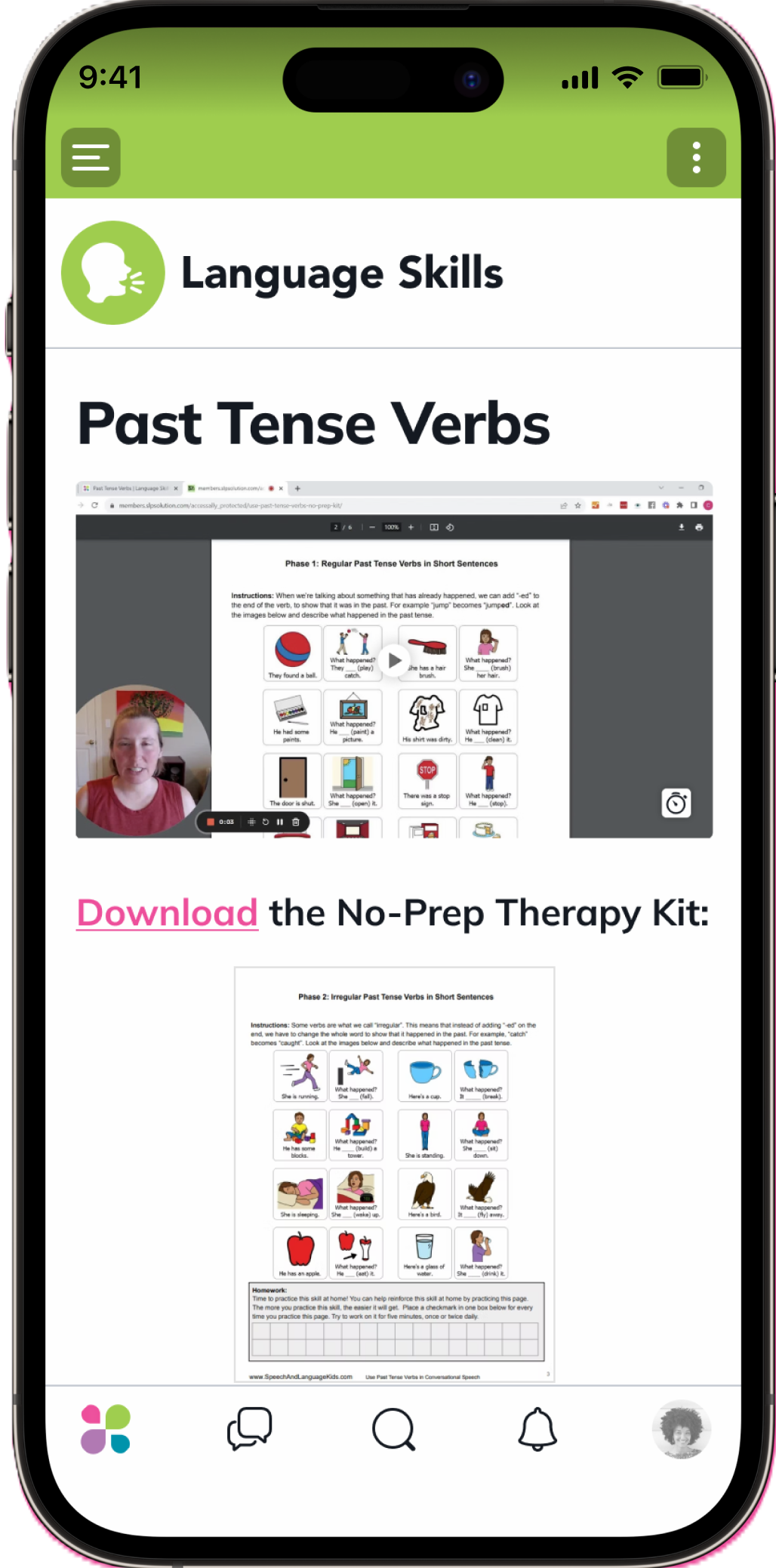Goal: Use Frontal Focus Resonance to Reduce Glottal Fry and/or Laryngeal Tension
Overview of Frontal Focus Resonance:
Watch this video for an explanation and demonstration of how to teach frontal focus resonance to a client. This is perfect for clients with glottal fry, laryngeal tension, and/or vocal fatigue:
Long Term-Ultimate Goal:
Client will independently use frontal resonance during spontaneous conversation in all settings 85% of the time.
Download the No-Prep Therapy Kit:
We have a start-to-finish therapy kit that will give you everything you need to practice this skill in therapy and send home homework. Click the packet below to open it. Then, print it out and place it in the child’s notebook or binder.
Therapy Phases:
- Education of Overall Vocal Function: Client will demonstrate understanding of how the voice works by identifying breath support (belly breathing), larynx (voice box) and nose 100% of the time on 3 out of 4 data collection days.
- Belly Breathing Practice (this should be review): Client will demonstrate belly breathing when prompted 9/10 times during a therapy session.
- Awareness of Resonance: Client will go between frontal resonance focus (nose, lips or cheeks) vs. laryngeal focus while humming following a model and using tactile feedback (feeling face with hands) 80% of the time on 3 out of 4 data collection days.
- Frontal Resonance with Humming: Client will hum using frontal resonance independently 85% of the time on 3 out of 4 data collection days.
- Frontal Resonance While Saying “molm”: Client will speak the word “molm” in isolation using frontal focus resonance 85% of the time on 3 out of 4 data collection days.
- Frontal Resonance with /m/ Syllables: Client will independently speak syllables that begin with /m/ (“ma”, “me”, “moo”, “moe”, “may” and “my”) with frontal focus resonance 80% of the time on 3 out of 4 data collection days.
- Frontal Resonance with /m/ Words: Client will independently speak single words that begin with the /m/ sound using frontal focus resonance 80% of the time on 3 out of 4 data collection days.
- Frontal Resonance with /m/ in Sentences: Client will independently speak simple sentences that begin with the /m/ sound using frontal focus resonance 80% of time on 3 out of 4 data collection days.
- Frontal Resonance Reading Aloud (below reading level): Client will independently read a passage/book (below their reading level) with frontal focus resonance 80% of the time on 3 out of 4 data collection days.
- Frontal Resonance Reading Aloud (on reading level): Client will independently read a passage/book (on reading level) with frontal focus 80% of the time on 3 out of 4 data collection days.
- Frontal Resonance Structured Task: Client will independently use frontal focus resonance 80% of the time for 5 minutes during a structured conversational task on 3 out of 4 data collection days.
- Frontal Resonance- Unstructured Conversation: Client will maintain frontal focus resonance during 5 minutes of unstructured conversation with fewer than 2 prompts on 3 out of 4 data collection days.
Supplemental Materials
Here are some other resources that may help you when working on this skill:
Frontal Focus with /m/ Syllables
Prompt for the student to use frontal focus for “ma”, “me”, “moo”, “moe”, “may” and “my”.
For a visual aid, download our sound syllable spider.
Prompt for student to use frontal focus for words that begin with /m/. If the child is struggling, be sure to have them begin the word with the frontal resonance hum before saying the rest of the word. Cue them to keep the buzzing in the place that they described it during the humming step. For example, if your client says he feels it buzzing in his nose, cue him using those same words.
For flashcards of /m/ words, use our worksheet below.
Prompt for student to use frontal focus when completing a structured tasks (e.g. Headbands, Guess Who, etc.). You can also use our structured conversation prompts pack.
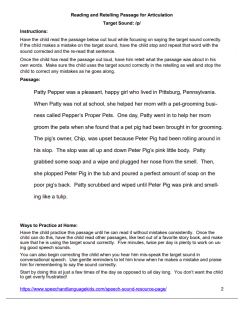
Reading Passages for Every Sound
Prompt for student to use frontal focus when reading aloud.
